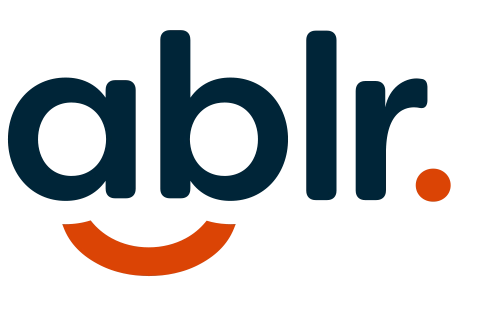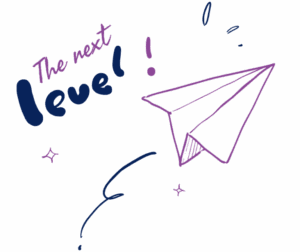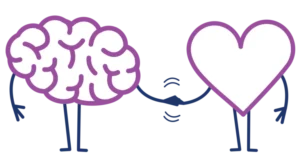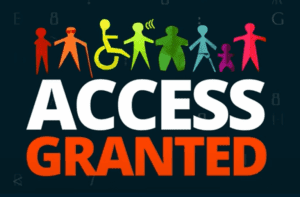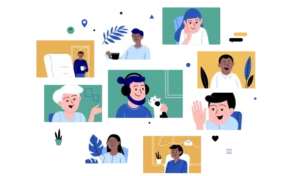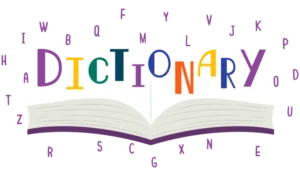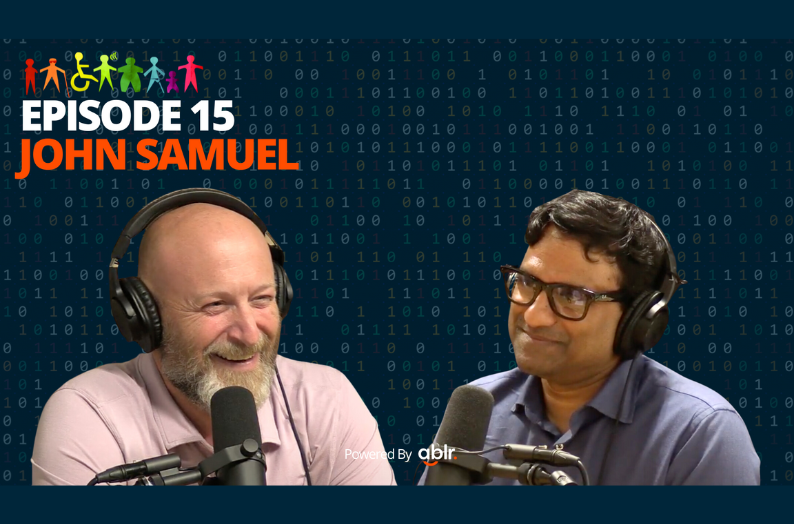Access Granted: John Samuel Part 2 Transcript. Tune in wherever you listen to podcasts.
Mike: Welcome back to Access Granted, the podcast brought to you by Ablr. Today, we’re excited to welcome back our remarkable CEO John Samuel, who is not only a visionary leader, but also a talented author. In this episode, we dive into John’s inspiring book, Don’t Ask the Blind Guy for Directions, where he shares his personal journey with retinitis pigmentosa, And his experiences of losing his sight.
Join us as we explore the powerful stories and insights behind his book. Tune in to be inspired by John’s journey and be sure to grab a copy wherever you find your favorite reads.
I would say bluntly, the thinking is over. It’s more about doing. And I think, I don’t know how any organization now, in today’s environment, and frankly any environment can say, well getting perspectives from all different kinds of groups of people, that’s a bad thing.
John: I agree.
Mike: And being inclusive, again, from the sheer number of people, like one in four people have a disability, one in five.
And then the fact that folks aren’t disclosing, right? Which is a wonderful segue. All right John, let’s talk about the book. I got to tell you, so many people I know have read it. The book is awesome. It’s awesome. It really is. First of all, the title of the book is incredible. The visuals on the book are incredible.
The story in the book is incredible. Talk to me a little bit about the book. Tell me the title, tell me about the process of what your head was about writing the book. And then tell me about what’s going on with it, because I think it’s an incredible book and I think everybody needs to read it.
John: Yeah. The book is called Don’t Ask the Blind Guy for Directions. A 30,000 mile journey for love, confidence, and a sense of belonging. And so, the idea about the book was. I do a lot of keynote presentations and do a lot of talking. But I know that people taking content in different ways. And so if we can create a book and share that story to folks who benefit from reading, that’s great.
We can do that. And so when I was going through my own vision loss and the challenges I was going through. Because we all go through crap every one of us. And just mine was my vision loss and navigating the world that way. And so by sharing that story my hope was to give a sense of hope to people and to give people inspiration to say, look, we can get through this shit.
And so the initial title when I was first coming up with it. It was a called a love note to all my Uber drivers. Because when I get an Uber, it’s almost like I got to practice my speech. I had 10 to 15.
It is, cause I literally depending on how long my Uber drive was.
Mike: You should be doing the marketing bro.
John: It was like however long I had with my Uber drive, I had an opportunity to practice my talking. So I’d give my spiel, whether it be five minutes, ten minutes, fifteen minutes. I could spread my story across that length. And what I realized was my Uber drivers were the ones who would really be impacted by it.
The number of Uber drivers who would start following me on LinkedIn, or even emailing me or texting me to just say thank you. It was amazing because I don’t think people necessarily grow up and say, I want to be an Uber driver when I grew up. But they become an Uber driver because there’s something in their life that’s causing them to do that.
Whether they need extra money, whether they’re empty nesters or they lost their job. Something’s happened that somebody is doing Uber. And so by hearing my story and if it could help them out. And giving them hope or giving them the reason why. You know, today you helped me get to my job so I can help other people.
Thank you for that. If that Uber driver could benefit from that and help them in their day, more power to that right? And so that’s why, because I know honestly, I would not be able to do the work I do without Uber. I wouldn’t be able to come back to North Carolina where we don’t have public transportation without my Uber drivers.
So it truly is a love note to them. But again, the idea of the book was to, to share my story, relate with folks, and spread a little bit of awareness of what’s going on. You know, disability inclusion is about and how to accept yourself because we’re all going through crap. But we need to be able to accept our whole self.
And once you do that, you’ll find what love is and you’ll find a sense of belonging and, that’s gold man.
Mike: Yeah, it is gold. This is about your story. There’s a lot of rejection in here. There’s a lot of challenge in here. There’s a lot of overcoming things and a lot of proving to yourself, you know, that you are good enough right? And talk about a few of the pieces in the book where you’re like, okay this is going to land. This is going to make an impact.
John: I think that in the beginning of my story about not accepting it, you kind of go through all these stages of grief, right?
And it’s like going through denial, not wanting to be able to accept it. And I think that’s one big piece right? Not being able to accept having vision loss or a disability. And I think it was my own unconscious biases that I thought having a disability meant it’s a liability right?
Whether it be for companies, whether it be for being a partner to someone. And that acceptance of that and understanding, no this is just a component of who I am. It’s not my whole identity, but it’s a part of my identity. That acceptance of it took some time. And that journey, it took a long time and you’re always going to be. I’m going through that every day right?
And so I think another part of that story is coming up with innovative solutions. Throughout the story you’ll figure out like I’m figuring out ways, how do I overcome my disability in different ways? Whether it be going up Mount Kilimanjaro and putting a red light on my guides foot and following the light to climb to the top of the mountain, right?
You have to come up with innovative solutions. And that’s why I always say people with disabilities are natural problem solvers. And what company doesn’t want that? And again, those are kind of the stories that come out. And I feel like there’s different pieces of this story that I think different people will be able to relate to.
Not just people with disabilities, but all people. And that’s one of the pieces. That’s when I had that aha moment was that my story isn’t just about disabilities. But it is about overcoming challenges in life, and that everyone does. And then if I was able to share my story, I was able to incorporate some of the statistics about disabilities and disability inclusion.
And if that can help raise more awareness for the work that we do and the mission that we have, that’s powerful for us.
Mike: Yeah. It’s sort of like a redemption or vindication story. Which you know, I’m a big fan of those. It was a quick read for me, but I was blown away, man.
I remember you telling me that I had to go fly to Africa. You’re like, I’m not getting what I want out of this life. I’m going to just pick up and fly to Africa. Visually impaired, your vision’s going down. You got your family here. You’re just like, I’m going to roll. Like I’m just going to pick up and figure some stuff out on my own.
You got on a plane and you flew to Africa and started a life over there by yourself man. In a dangerous, potentially dangerous area. So talk to me a little bit about that. Like where does that strength come from man?
It’s like, I’m going to do this.
John: So I think it’s having faith right? Faith is a big part of who I am. And it’s something that it powers me and empowered me to say, you can do this.
This is something you can do. And I think the love and support of my parents was another thing.
Mike: Lovely people by the way. Really lovely family man.
John: They are. They really are. And my dad, he had to move when he was 19 years old from India to the U.S. not really knowing much English and only 7 dollars in his pocket.
And so I’d grown up hearing this story of him overcoming challenges in his life to get where he was. And so sacrifice was something I knew. My parents always told me growing up, you’re going to have to work twice as hard as everyone else. And so with my vision loss, I didn’t see a future career for myself in the U.S. because I just didn’t think the U.S. was ready for somebody with a disability to be successful in corporate life.
And so if I could go to Africa and create my own path, create a path where nobody else wanted to go, that’s where I had to go. And that’s what drove me there. And that’s what was a driving force was like, if I can be successful here, I can come back home to the U.S. and say, look I can do it. And it was almost like, I’m going to prove it and I’m going to shove it down your throat.
Mike: And boy, let’s say yeah you’re shoving it my friend. I say that because you’re a good dude, man. You are man, you’re a good dude. And you are living a really good fricking existence. And you are a leader in this space and you’re extremely well respected.
I mean, every time I get on a call it’s like, Oh I know, John. It’s like, God does anybody not know John? But man I’m telling you it’s been an honor to work with you on this. And we’re not anywhere close to being finished so don’t wrap up. But one of the things you talked about with employment. And it’s like, what does that feel like?
Because you have your MBA, you went to a great university, you went to a couple universities. Which was in the book by the way. Which meant some amazing people along the way that have helped you on your path. But you talk about in the book about problems, like you had to problem solve. And it immediately triggers a couple of the programs right now that we’re talking about.
We’re talking about staffing folks with disabilities, giving folks the opportunity to have a quote unquote whatever the normal life is. But have the opportunity to belong, make an income, feel good about themselves because that’s important. But one of the things, your passion project has always been employment.
And that’s really always been the mission. Although it’s always been accessibility for all and people first. But it’s really about employment for folks. And we started a division called Ablr Works. I remember you telling me, it’s going to be the future Mike. It’s going to be the future Mike. And it is the future.
And I see it so clearly. What does that mean to you, what we’re doing with Ablr Works?
John: Yeah. I mean employment has been something I’ve struggled with my whole life. Even before I had my visual impairment. I remember as a, 16 year old kid, trying to get my first job. I applied to every single store in the mall, I didn’t get a single job.
It wasn’t because of my vision loss. I don’t know what it was. I just didn’t get it. And then I remember.
Mike: Because you had a reputation Johnny.
John: I guess I had a reputation, I don’t know what it was. So I think that desire, I’m like oh, they don’t want to give me a job? So I got a job at the Harris Teeter grocery store as a bagger.
And I moved up quickly from a bagger to a cashier because I was going to work my ass off. Cause like, I was going to move up. I had that hunger. And as I started losing my sight and seeing the challenges that posed in the workplace, that’s where that passion said I’m going to help people.
And so the second piece of it was, you talk about taking those risks. I took a risk to go to Africa. It paid off for me because I had financial independence. And I understand after I had that experience in Africa, coming back to the U.S. I was able to take more risk because of that financial independence.
And so if we can give people with disabilities or people who are blind in the workplace financial independence. That allows them to take more risks. And you need to take risks sometimes to be successful. Both of us, we’ve taken risks throughout our careers, throughout our lives. Sometimes they’ve paid off, sometimes they haven’t.
When they do pay off, man something special happens. And I think that’s what Ablr is all about right? We took a risk to launch this business and it’s paying off not only for us, but for the people that we’re serving. And so being able to help people who haven’t had allies in their life. Because again, I won’t say my journey was not a journey by myself.
There have been allies and angels and supporters throughout my life who’ve helped me get to where I am today. And now we can be an ally to these individuals in our program. And so sometimes they just need that extra help. And that’s what we’re doing. And my hope is that they will pay it forward just the way like we’re doing it now.
They’ll pay it forward to the candidates in our program in the future. And that’s going to be really special.
Mike: Yeah. And the workforce development program, John if you want to talk a little bit more about specifics.
John: Ablr Works really has two main components. We have the adult programs, and then we also have our new high school program which we’re launching.
And with the adult program, we are providing a wraparound services. Not only to train individuals with technical skills to get into tech related jobs, but we’re also giving them support in terms of building up their professionalism, building up their resumes, their personal brands, helping them to get the confidence that’s needed to put their best foot forward in the workplace.
And we brought on Logan Passy as our job developer. Who’s just come in as a rock star and being able to support these individuals in their job search. And it comes back into Shannon Garner, who worked her way up on our accessibility team. Who’s training individuals, and she knows what it takes to get there.
And so we have this great team. Then we have Liv Evans, who’s kind of doing all the logistics, making sure things are moving. And it’s really special to watch that young team. And we’re starting to see more and more people getting jobs. And that’s the most amazing thing. And on the high school program, I really believe we’re going to have a similar impact by exposing young blind high school students to the future of work. But also showing the companies who are inviting to talk to them that this is the future of the workforce.
You better get ready. And it’s a two way learning street here. They’re going to learn, the kids are going to learn, company’s going to learn. And at the end of the day, hopefully we have a more inclusive workplace.
Mike: There’s no hope, my friend.
John: No hope, no hope.
Mike: There’s no hope.
John: But you know, that goes back to our whole thing right?
Mike: There’s always hope my friend, but I agree.
John: I get you. But you know what I mean? I think it goes back to our whole thing right? The goal when you’re a mission driven company, you should always be hoping that you can just work yourself out of that job. The goal is that companies become more accessible.
The idea is that companies become more inclusive and that people are trained that they can go in. They don’t necessarily have to go to a specific program just like ours to get trained, but they can go to any training program because they’re inclusive, they’re accessible, they’re accommodating. And so I think that’s the difference between a mission driven company is like, mission driven company our goal is that we can work ourselves out of a job one day.
And at that time we can retire happy and say, look we made an impact.
Mike: Yeah making an impact is such a big deal. I mean, when we do these graduations and everyone’s family shows up and the parents are there and the students are just excited. I mean, it’s just such an energy in the place and it feels just incredible.
And it’s on a Saturday morning, and it’s like I wake up and I’m like put some music on, let’s roll to graduate. I’m excited. But it’s really incredible because we’re in the process of becoming what we are going to be. And the process has been difficult at times. But so beautiful in so many ways.
And I love the pay it forward piece. Cause I keep thinking, I always have a tendency of like looking years out down the road. But I just keep thinking about this collective of people, these are clients, our partners, our friends, our family, our advocates, our graduates, their family, their friends. It’s just, there’s just a movement happening and you can feel it.
And it just excites me so much to see the smiles on our team’s faces and now they’re getting positions and careers. It’s just unbelievable. And we do have an unbelievable team and we talk about a three legged stool. But we talk about Liv and Logan and Shannon and it’s unbelievable what they’re doing.
It’s incredible. And I’m so grateful for what they’re doing with this program. But also we’ve got Sarah and Kim and Ariel and Angus. It’s like, there’s just a crew of amazing humans that are doing great work that care.
John: And also all the partners. I mean, that’s the thing I think our community has come and surrounded us and supported us. I think that’s the one thing that’s been unique about the success of Ablr because it’s not about a person, it’s not about a couple people. It’s about the community who’s come and supported us. Because like you said, it’s people who hear about us or those referrals. That’s really what’s helped us right?
And it’s the partners that we’ve made, and it’s genuine friendships, genuine relationships. And you talk about the word caring, and I think that comes through. And I think you mentioned the word purpose. I don’t necessarily like the word passion because I think we’re purpose driven, right?
It’s not a passion that drives us, but it’s a purpose that drives us. And that purpose I think is relatable to a lot of people. And when you are purpose driven, when you do have this kind of the best intentions and at heart, other people want to help that. And I think that’s what’s made us unique and special.
And that’s been the success of Ablr is our community.
Mike: Thanks for listening to Access Granted, a podcast powered by Ablr. We hope you enjoyed today’s chat with our CEO, John Samuel as he shared his remarkable journey and personal insights from his book, Don’t Ask the Blind Guy for Directions. If you connected with his story, grab a copy of the book wherever you get your reads and follow @Ablr360 on social media to keep up with his impactful work.
